International Keynote Speakers
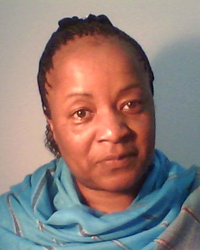
Prof. Judith Mavodza, Zayed University, Abu Dhabi, United Arab Emirates
Judith Mavodza is Associate Professor and Assistant Director for Public Services at Zayed University, Dubai. Areas of research interest include Reference and Information Skills Instruction, education and PD of librarians, marketing and assessment of library services, and knowledge management. Dr Mavodza serves as an editorial advisor to the Evidence-Based Library and Information Practice Journal and is a published author of several scholarly journal articles, a reviewer for several journals, a book author, as well as a presenter at many professional/ academic conferences.
Title: Impact of Digital Transformation on 4.0 Age Academic Library Services
Abstract: This presentation addresses the transformation or metamorphosis that is happening in academic library services. The integration of digital technology into most aspects of services, radically altering how academic libraries operate and provide value to the communities they serve, is known as digital transformation. It is also a cultural shift that necessitates them to challenge the traditional methods of service, experimenting, and learning to accept failure while moving into the future. This is achieved by addressing digital transformation in library reference services and what that signifies; digital transformation and its implications in academic research; and the impact of digital transformation in library instruction services. The method used is a literature review. Results of the investigation reveal suggestions and ideas on how to provide services in the current fast-changing information environment heavily impacted by digital transformation, while also being clear about the way forward.
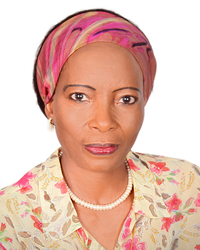
Prof. Mary Sengati-Zimba, Zayed University, Abu Dhabi, United Arab Emirates
Prof. Mary Sengati-Zimba is an Academic Librarian at Zayed University, United Arab Emirates, employed as an Associate Professor and Assistant Director of Public Services at the Abu Dhabi campus. She holds a Doctorate in Education and a Master of Arts in Library Science. Prof Mary has over 35 years of experience as an academic and school librarian. Prof. Mary has presented at international and national conferences and has been a consultant for various organisations on Librarian training. Her research interests include Information Literacy at all levels, Academic integrity, Academic, School and Public Libraries development, management, and capacity building. She has been a key player in capacity building for Library staff and School Librarians in the UAE, workshop facilitator and presenter at professional and academic conferences.
Title: Building a Sustainable Information Literacy Program across the university in the era of the 4th Industrial Revolution
Abstract: This presentation focuses on building a sustainable Information Literacy (IL) program in an academic library, based on the practical experience of a university in the Gulf. The program addresses the needs of students, staff, and faculty/researchers, i.e., for the whole academic community. Librarians, through IL instruction, workshops, and Reference Services, engage in building skills and competencies that allow individuals to cope with life, work, and studies in the 21st century. Through IL, learners are engaged to think critically, interpret, and evaluate information and use analytical skills to manage the technology for providing the information needed. Information Literacy skills are key to putting technological skills to use. Developing a sustainable IL program prepares learners with skills needed to cope in the 4IR workplace, research and life in general. This makes Librarians and Information Management professionals more relevant than ever in training citizens with the skills needed, including digital literacy, information literacy, health literacy, media literacy, data literacy and other literacies. Interpretation and use of the information created by 4IR technology require knowledge and skills available through IL. Strategies, lessons learned and best practices used at this university Library may be applied in other libraries.
National Keynote Speakers
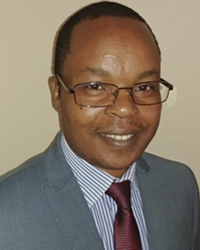
Prof. Bosire Onyancha, Department of Information Science, University of South Africa
Omwoyo Bosire Onyancha is a Research Professor at the Department of Information Science, University of South Africa. Prof Onyancha was the Head of the Department of Information Science, University of South Africa, from July 2011 to September 2015. He holds a PhD in Library and Information Science. Prof Onyancha is a C2 NRF-rated researcher. His areas of research interest include Informetrics, Scientometrics, Altmetrics, Information Resource Management (IRM), Management of Information Services, Knowledge management and organisation, user education, ICTs in LIS education and training, and Information Searching and Retrieval (ISR).
Title: Conceptualising computer literacy, digital literacy, media literacy and information literacy: an informetric perspective using journals of publications
Abstract: The era of the information age has witnessed the emergence of several concepts related to or used interchangeably with or in place of information literacy. Informetric scholars have noted the occurrence of over 73 literacy concepts in the literature on information literacy. The majority of these concepts emerged in the second decade of the 21st century, with the most common being media literacy, computer literacy, and digital literacy. Furthermore, the multidisciplinary nature of IL and its associated literacies, namely digital literacy (DL), computer literacy (CL) and media literacy (ML), has resulted in increased dispersion of the literature on the literacies across many disciplines. This has resulted in the publication of papers on DL, CL, ML and IL in hundreds to thousands of journals, some of which are not necessarily specialised in the subject domain. Finally, it has been observed that while the literature on IL-associated literacies is, to a large extent, intertwined, the concepts may have developed to acquire their uniqueness and therefore become independent concepts in the 21st century. This study sought to examine the publications on CL, DL, ML and IL in an attempt to conceptualise the concepts using the sources that publish research in the respective subject domains. The study found minimum overlaps in the CL, DL, ML and IL journals, with 92 journals publishing papers in all the subject domains; the publication intensity differed from one concept to another; regarding the core journals in each subject domain, CL posted the highest number (i.e., 34), followed by DL (28) while ML's and IL's nuclei consisted of seven journals each. The list of core journals differs across the four subjects. The implications of the dispersion of the CL, DL, ML and IL in a variety of journals are discussed, and conclusions are drawn based on the findings.
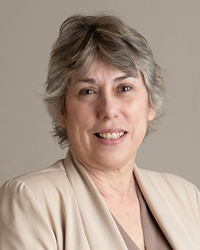
Dr Brenda van Wyk, University of Pretoria
Dr Brenda van Wyk holds postgraduate qualifications in both Information Science and Education. She is currently a senior academic in the EBIT Faculty at the University of Pretoria. Some of her previous positions include the Head of LIS, the IIE and the Dean of Research at the IIE. She has been responsible for literacy teaching, postgraduate supervisor training and postgraduate support in her current as well as previous positions. She has a passion for technology-assisted teaching and learning toward digital inclusion and cognitive social justice. Her research interests include open scholarship, metaliteracy, ABET, critical digital literacy, and information and research ethics. She serves on the steering committee of ACEIE. She was instrumental in the planning and implementation of open-access research repositories. She is the Managing Editor of a DHET-accredited journal: The Independent Journal of Teaching and Learning (IJTL). She has published several manuscripts and articles in academic journals, chapters in books and conference proceedings. She is a research associate with JET Education Services.
Title: Online writing clinics as third space towards developing e-research literacy - a case study
Abstract: Literature abounds with the lack of research and eResearch literacy among novice researchers. Research competency refers to the ability to apply a range of statistical, technical, and theoretical knowledge, along with very specific skills. E-research requires the use of information and communication technology to facilitate research and requires, inter alia, both academic and digital literacies. During the pandemic lockdown, a number of issues surfaced in the case under study: the lived extent and impact of digital exclusion, and the inequality of the teaching and learning ecosystem were foremost in hampering the acquisition of eResearch skills. The transition to technology-assisted online facilitation posed challenges to information specialists, academics and students alike. The aim was to answer two questions: firstly, which research literacy, e-Research skills and research competency are required by novice researchers; and secondly, how can writing clinics transition from the traditional writing centres to online facilitation in supporting academic writing and research online? Informed by recent research and through the lens of Third Space theory, this paper reports on the findings of a mixed-method study. Qualitative data were collected from semi-structured interviews with research managers and triangulated with collected quantitative data from a survey of 26 academic and support staff involved in academic and information literacy. Findings are that the foremost reported barriers and challenges include a lack of critical digital literacies and eResearch competency to enable self-determined research and learning. Online writing clinics as a Third Space were offered as a solution. The difference between a writing clinic and the traditional writing centre lies in the acknowledgement of prevailing metacognitive injustice and addressing this design with a more personal approach to alleviating fears of failure. This paper sets out to add to the existing body of knowledge and address inequalities.

Prof. Johannes Cronjé, Department of Information Technology, Cape Peninsula University of Technology
Johannes Cronjé is a professor of Digital Teaching and Learning in the Department of Information Technology at the Cape Peninsula University of Technology. Before that, he was the Dean of Informatics and Design. His interest lies in how people learn from other people using technology. He has supervised more than 140 Master's and Doctoral students and published more than 65 peer-reviewed papers and 8 book chapters. He is a postgraduate examiner for 10 universities. He is a sought-after international keynote speaker and has been a visiting professor at seven universities internationally.
Title: Moving from Collection to Connection: A post-human, post-COVID perspective on Information Literacy
Abstract: Once upon a time, people believed that humans ruled the world. But our experience over the past two and a half years has shown that the world is ruled by a combination of humans, machines and a virus.
The virus made a very simple rule: Stay away from each other, or I will kill just enough of you to scare the living daylights out of you. The humans responded to this by using machines to communicate with each other remotely, while the machines developed sophisticated algorithms to extract maximum information out of the humans and manipulate their behaviour accordingly. Traditionally ,a combination of a computer and a human is called a cyborg. But when all the connected humans are combined with all the connected machines, the Great Connected Cyborg awakens. This paper will consider how the Great Connected Cyborg uses its multiple tentacles in its struggle for world domination, and explore the benefits and harms that it poses to us.
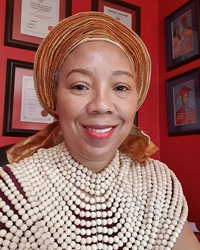
Dr. Daisy Selematsela, University of Johannesburg
Daisy Selematsela (PhD) has been appointed as the University Librarian of Wits University from 1 March 2022. She is a Professor of Practice of Knowledge Management at the University of Johannesburg.
Her role in academic citizenship involves serving on international and national Boards of Directors. She previously served on the Board of the National Library of South Africa, the Council for Library and Information Services (NCLIS) and the Council of the National Archives of South Africa. She was Chair of the South African National Committee of CODATA through the NRF and also served on the Editorial Board of the Committee on Data for Science and Technology (CODATA) Data Science Journal (DSJ). Currently, she serves on the Editorial Board of both Global Change Research Data Publishing and Repository and Preservation, Digital Technology & Culture (PDT&C) Journal.
Daisy is the recipient of the 2016 and 2019 Knowledge Management Leadership Award by the Global Knowledge Management Congress & Awards in association with the World Education Congress, and the 1st International Conference on Knowledge and Innovation Management (ICKIM), Babcock University.
She is also an alumnus of HERS-SA and HERS-Bryn Mawr College (Philadelphia).
Title: The Transitioning of Information Literacy in the Global South
Abstract: The world is changing fast. We have known this from the writings of futurist Alvin Toffler in the 80s when he sensitised the world to the impending digital and communication revolutions that would transform human societies in profound ways. Well, Toffler's world is here! Google and Wikipedia make it possible for us to access information at our fingertips anywhere and anytime. In a split second, you can access information that, in the world gone by, would have taken you hours to days to access; for example, taking time off whatever activity you were doing, taking some mode of transport and travelling to a library to take out a book. With the seismic shifts the world has made in accessing information, you could ask: Who still needs a library in the digital age? Are libraries still relevant? After all, Google and Wikipedia have all the information I need. In this article, I shall determine whether the role of information literacy in libraries continues to be relevant in a changing society.
Battles (in Jantz, 2016) asserts "In the library, the reader is wakened from the dream of communion with a single book, startled into recognition of the worlds materiality by the sheer number of bound volumes; by the sound of pages turning; covers rubbing; by the rank smell of books gathered together in vast numbers". This quotation, in essence, challenges the library of the 21st century to redefine itself and its collections, and its user education processes, and to reflect on whether to preserve and maintain its colonial traditions or to undertake a critical examination of the library's underlying principal responsibility to its users.
Kafka asserts, "a writer's life and work are not a gift to mankind; they are its necessity, a book is an axe to break the frozen sea within us".
Writers expose views about social reality. They expose society to discourses they would otherwise not be aware of. They are the translators of the human condition to the public through prose, poetry, stories and analyses. Often, their product is considered subversive by power-mongering authorities whose survival is threatened by the truth exposed by writers.
With the important role of writers as a backdrop, it begs the question: What is the role of information literacy in libraries concerning communities and society? A library is a place of sanctuary for the products of writers and needs to be informed by intelligence on user preferences and behaviours to remain a sanctuary.
From the perspective of societal development and social justice, libraries and archives, including museums across the African continent, are facing interwoven challenges that impact their collections, for example, budget cuts and book donations that do not address societal needs. The relevance of the collections impacts the provision of information at the point of need, including the library as an environment that cultivates epistemic contribution in forms of materials and collections that are "aspirational, navigational, social, familial, linguistic and resistant" (Yosso,2005). Most library collections are perceived to be colonial and not relevant for the knowledge, understanding, and very often, practical reason applicable to the communities they are intended to serve. How information literacy aligns itself to these imperatives.
In libraries, the concept of "formalism" as referred to by innovation scholars attests to the preference for rules and procedures and the reluctance to change by libraries. For libraries, these rules provide for guaranteed high-quality service but also lead to institutionalised rigidity and resistance to adapting to the transforming information and digital world. This "formalism" impacts the library to innovate, contribute to scholarship and the advancement of knowledge for societal benefit. The transformative role of information literacy will be tested against the "formalism" analogy.

